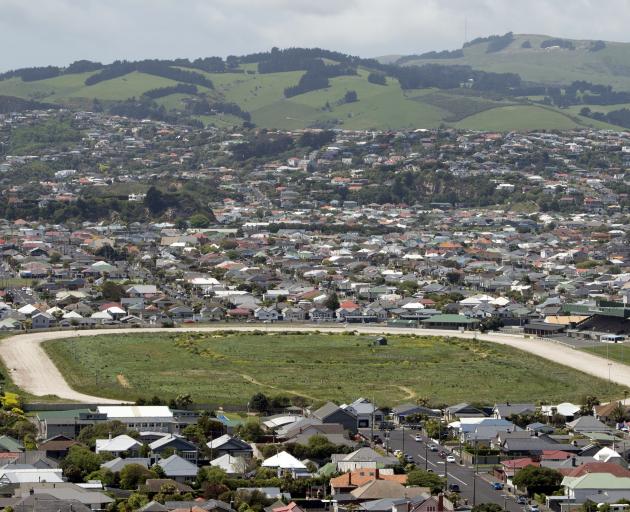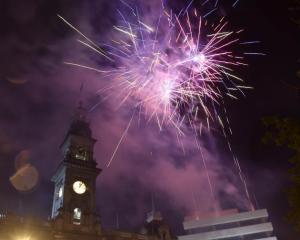

All sorts of people — relatives, friends, charities — would be at your door clamouring for an audience to explain why they would be a worthy recipient of some of your newly acquired funds.
You could of course do with it what you will: it is yours to spend. Or save. Or donate. Or repay a mortgage.
Recently the Dunedin City Council found itself with at least this amount. Apparently it came from savings in "existing capital expenditure budgets".
And what it chose to do (moved by Mayor Radich and seconded by Cr Benson-Pope, 14 in favour and only Cr Vandervis against) was to use $13.2 million to buy the land which was formerly Forbury Park raceway.
The DCC however is not free to spend money without reference to ratepayers and consultation processes. Neither had it just won money in a lottery. Any money the DCC has comes out of ratepayers’ pockets.
In this case it apparently comes from money which has been allocated through a consultation process but which hasn’t been spent. And in this case it is essentially borrowed money.
Instead of putting any spare money back in the kitty for reallocation or even repaying debt, the DCC has chosen to treat it like a private lottery win.
If we had $13.2 million to spare, the people of Dunedin may have suggested we use it for water infrastructure, or footpaths, or carparks. Or the Taieri Gorge train. Or even more cycleways. Or more policy advice on climate resilience. The choices for that sum of money are huge.
But the DCC did not put the money back in the kitty where it belonged prior to consulting on how it would be reallocated. It spent the money on buying Forbury Park in a secret meeting.
And to add insult to injury it now plans to consult on what to do with the land it now has. In other words it spent that money without even knowing what it intended to do with it.
From comments made by Mayor Radich "a site of this size is likely to have a variety of uses". He connected the purchase to providing reassurance of shoring up climate resilience in the city. He went on to say "the critical thing with this council [is] it is prepared to take action" and "at this stage all options are on the table, and it is important to get the community’s input".
This may not be entirely the case. There has been a South Dunedin strategy group, comprised of various local and central government department inputs, that has been looking into what should be done. This group is not accountable to the ratepayers specifically. And we have no idea whether it will listen to voices of concern around whether South Dunedin is really going under water any time soon, or whether having stormwater infrastructure as proposed will be useful.
But we have been told clearly by the mayor that this property was bought with no clear idea what it will be used for, so without any idea of whether it is value for money.
Nor even which part of the DCC operations it may contribute to.
Imagine that you didn’t win the lottery but you could borrow $13.2 million.
Would you borrow the money to buy something which seemed vaguely useful and then ask the kids what you might do with it?
This entire process is not one we should expect from our councillors and mayor.
A long time ago a Labour government allowed councils what is loosely called "the power of general competence". This meant they had the powers that everyone else has to carry out their business. They were not constrained by only being allowed to do activities they were specifically authorised to do.
Since then various governments have reined in local government by making rules about what must be achieved, such as clean drinking water. And in how they must go about their business, for example rules around taking a 30-year view of infrastructure and what annual and long-term plans should look like.
There are also rules around consultation.
The decision to use $13.2 million of borrowed but thought to be leftover money to buy something outside the planning process is not what is expected of a council. That it would do so behind closed doors, where the proposal cannot be publicly interrogated, and for a purpose which is either unknown or undisclosed is beyond belief.
Or perhaps not. We have as a precedent Sammy’s, a venue bought by the DCC in case it would be useful some day. That day has not come, and I understand there may be an additional $5 million needed to even make it useful.
If it was their own money they would not have done this.
- Hilary Calvert is a former Otago regional councillor, MP and Dunedin city councillor.











